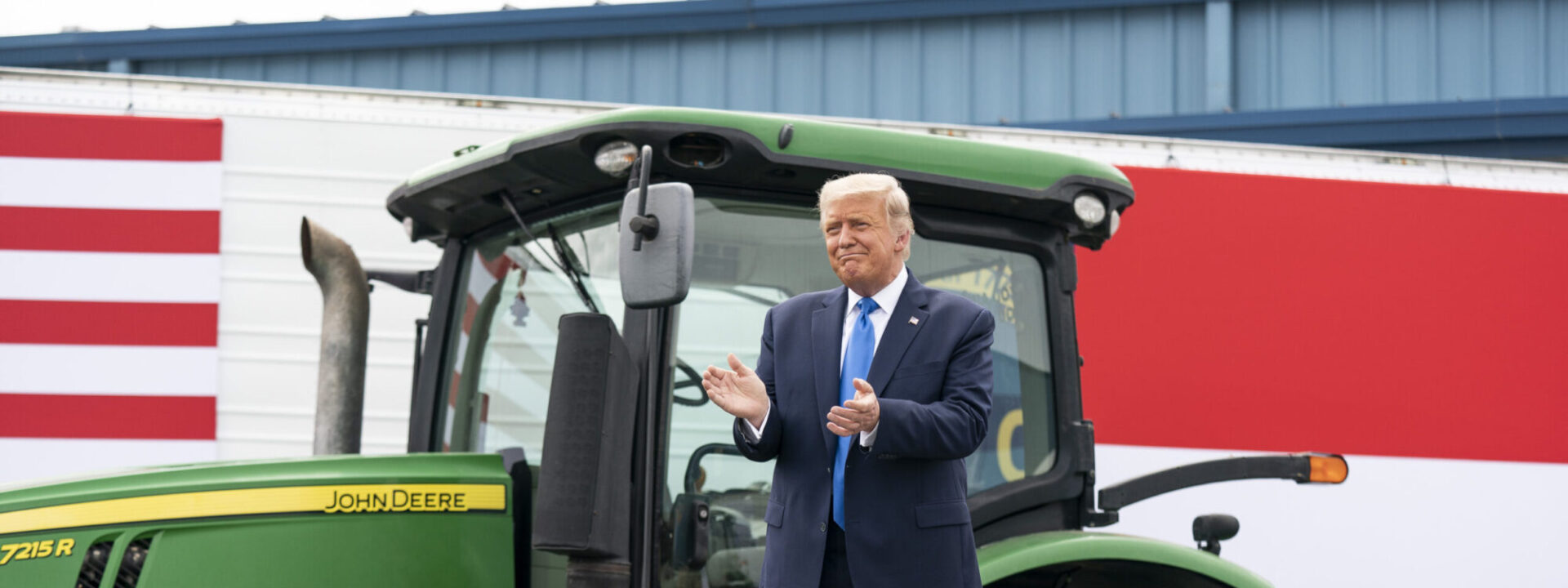America’s great farmers and growers have a friend in President Trump: He negotiated more than 50 trade agreements to boost market access and exports for American goods, provided $30 billion in support to farmers and ranchers during COVID-19, and authorized more than $4 billion for the innovative Farmers to Families Food Box program.
President Trump also made it a priority to preserve and protect our Nation’s public lands and abundant natural resources, signing into law the largest single investment ever in America’s national parks. On the global stage, he demonstrated the commitment of the United States to conservation through actions such as joining the One Trillion Trees Initiative.
Administration Achievements
Secured agreements and signed legislation to protect the environment and preserve our Nation’s abundant national resources
- The USMCA guarantees the strongest environmental protections of any trade agreement in history
- Signed the Save Our Seas Act to protect our environment from foreign nations that litter our oceans with debris and developed the first-ever Federal strategic plan to address marine litter
- Signed the Great American Outdoors Act, securing the single largest investment in America’s National Parks and public lands in history
- Signed the largest public lands legislation in a decade, designating 1.3 million new acres of wilderness
- Signed a historic executive order promoting much more active forest management to prevent catastrophic wildfires
- Opened and expanded access to over 4 million acres of public lands for hunting and fishing
- Joined the One Trillion Trees Initiative to plant, conserve, and restore trees in America and around the world
- Delivered infrastructure upgrades and investments for numerous projects, including over half a billion dollars to fix the Herbert Hoover Dike and expanding funding for Everglades restoration by 55 percent
Historic support for American farmers
- Successfully negotiated more than 50 agreements with countries around the world to increase foreign market access and boost exports of American agriculture products, supporting more than 1 million American jobs
- Authorized $28 billion in aid for farmers who have been subjected to unfair trade practices—fully funded by the tariffs paid by China
- China lifted its ban on poultry, opened its market to beef, and agreed to purchase at least $80 billion of American agricultural products in the next two years
- The European Union agreed to increase beef imports by 180 percent and opened up its market to more imports of soybeans
- South Korea lifted its ban on American poultry and eggs, and agreed to provide market access for record exports of American rice
- Argentina lifted its ban on American pork
- Brazil agreed to increase wheat imports by $180 million a year and raised its quotas for purchases of U.S. ethanol
- Guatemala and Tunisia opened up their markets to American eggs
- Won tariff exemptions in Ecuador for wheat and soybeans
- Suspended $817 million in trade preferences for Thailand under the Generalized System of Preferences (GSP) program due to its failure to adequately provide reasonable market access for American pork products
- The amount of food stamps redeemed at farmers markets increased from $1.4 million in May 2020 to $1.75 million in September 2020—a 50 percent increase over last year
- Rapidly deployed the Coronavirus Food Assistance Program, which provided $30 billion in support to farmers and ranchers facing decreased prices and market disruption when COVID-19 impacted the food supply chain
- Authorized more than $4 billion for the Farmers to Families Food Box program, which delivered over 128 million boxes of locally sourced produce, meat, and dairy products to charity and faith-based organizations nationwide
- Delegated authorities via the Defense Production Act to protect against breaks in the American food supply chain as a result of COVID-19

